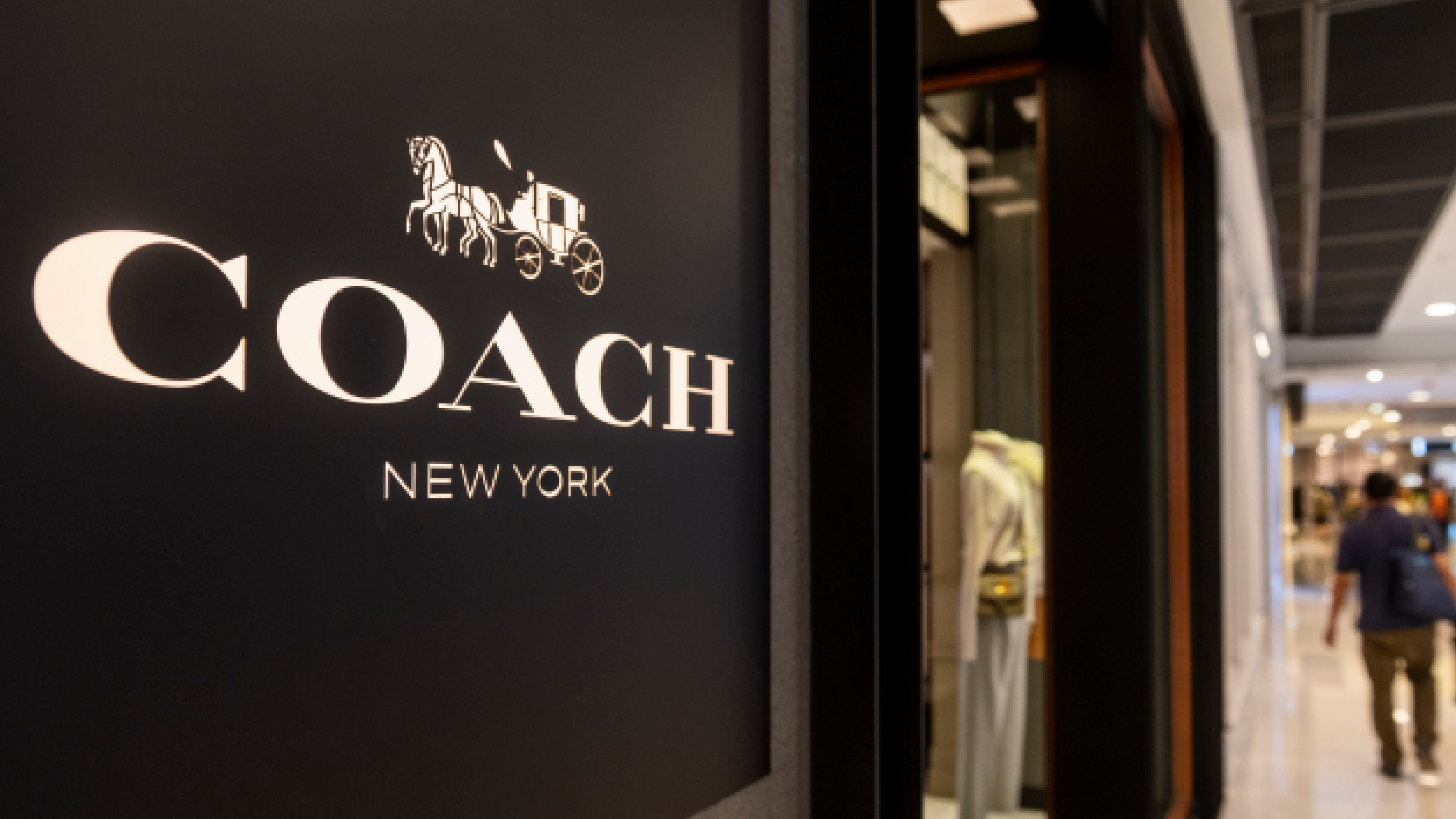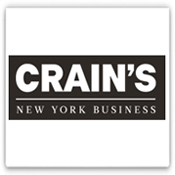Todd Kahn Steers Coach Into the Future
By Kellie Ell
Photo Credit: A Coach store, Sipa USA via AP
Coach has appointed a captain to help steer the brand into the future.
Parent company Tapestry Inc. said Thursday that Todd Kahn is now the permanent chief executive officer and Coach brand president, effective immediately. Kahn has been acting as interim CEO of the apparel, accessories and footwear brand since last July.
But the search for a permanent leader at Coach began even before that, in early 2020, when former Coach CEO and brand president Joshua Schulman departed. At the time, Tapestry said it was casting a wide net, conducting a global search for the much coveted role of Coach’s top job. More than a year later, the company has decided to place its bets on Kahn.
Tapestry’s CEO Joanne Crevoiserat said in a statement that Kahn is “the right person to lead Coach, partnering closely with me and the senior management team as we continue to advance our Acceleration Program.”
Others in the industry, who are familiar with Kahn’s track record, have taken note, too.
“Todd has developed as a well-rounded strategic executive within Tapestry and I am glad they recognized it,” Elaine Hughes, a veteran headhunter who helps place executives in senior-level roles, told WWD. “Todd, as an executive, is probably one of the most collaborative executives that I’ve ever met. He knows how to work with other people. And I’m not saying that he’s not competitive. But he is competitive in the most respectful manner.
“He has a legal and finance background and he’s operated businesses before,” she continued. “He’s someone in a leadership role who is a great listener. He’s an executive who knows what he doesn’t know. Todd’s job is not to say whether it’s going to be a leather season or a print season. That’s the job of his chief creative director. But from a strategic standpoint, Todd’s going to understand what’s the best distribution for the brand, how to maintain the brand’s integrity, to really focus on how the consumer has evolved. He’s already been successful at all of these things. I don’t really know who else out there has that kind of combination of success as a leader, plus long-term familiarity with the company.”
Hughes also pointed out that Kahn was part of the team that helped revive Coach around 2014 or 2015 when it began to lose market share to rival Michael Kors, which is now owned by Capri Holdings.
Kahn joined Coach in 2008 as senior vice president, general counsel and secretary. He’s also held the roles of chief legal officer, company secretary and president and chief administrative office. Kahn began leading the revenue generating business units of Coach in March 2020.
As CEO and Coach brand president, Kahn is responsible for all aspects of the brand and will report directly to Crevoiserate. His base pay is $950,000 a year, according to a Securities and Exchange Commission filing. He is also eligible for a target bonus of 125 percent of his salary under Tapestry’s Performance-based Annual Incentive Plan.
Kahn’s arrival in Coach’s corner office isn’t the first time the fashion firm has made changes to its leadership team. In fact, the entire Tapestry C-suite has undergone massive transformation over the last three years. Former Tapestry CEO Victor Luis was ousted from his post in September 2019 after delivering disappointing results. But it wasn’t because of the Coach brand. In fact, Coach is the retailer’s most lucrative business. It was Kate Spade and Stuart Weitzman that had declining sales, even pre-pandemic.
Either way, the entire company was on shaky ground and needed a new leader. Jide Zeitlin was named interim CEO in September 2019 and then permanent CEO in March 2020. At the time, Zeitlin promised to stay with the company for at least three years. But a few months later, Zeitlin abruptly resigned over past #MeToo allegations.
Crevoiserat was named interim CEO in July 2020. She was appointed to the permanent position last October.
But it wasn’t just Tapestry’s head honcho that has been in rotation. The CEOs at all three brands have left or been replaced in the last two years. Kate Spade also recently said it was reorganizing its creative organizational structure, with the departure of former creative director Nicola Glass. (The brand is currently conducting a search for a new creative director.)
“It’s a situation where they need some stability,” said David Swartz, equity analyst of consumer equity research at Morningstar. “And if Crevoiserat is comfortable with [Kahn] as CEO of Coach, that certainly helps him get into the permanent position.”
Meanwhile, Coach continues to be Tapestry’s biggest brand — and best asset.
While revenues at all three brands declined in the most recent quarter, sales at Coach still topped more than $1 billion, compared with $375 million at Kate Spade and $84.5 million at Stuart Weitzman. Coach has also had a successful partnership with Tmall. During China’s Singles’ Day on Nov. 11, Coach was rated the number-one brand for handbags, luggage and leather goods on the platform, helping grow revenues by more than 30 percent during the quarter, year-over-year, in mainland China.
In addition, Coach has employed a number of well-known celebrity ambassadors, such as Jennifer Lopez and Michael B. Jordan, to help grow brand awareness.
Swartz pointed out that growth in handbags — even during the pandemic — has benefited Coach.
“There’s still a lot of interest in designer bags,” he said. “And Coach’s position of being above lower-tier brands, but below luxury brands, still seems to be a pretty strong category.”
Coach also made gains thanks to its direct-to-consumer model, which placed less emphasis on its wholesale operations, compared with some competitors.
“So when the crisis hit over the past year and with the ongoing turmoil with the department stores, it hasn’t affected Coach to the same degree that it has some others,” Swartz said.
“We’ve seen a big increase in Coach’s online sales,” he added. “They’ve changed the online model so that they’re not dumping as much stuff online at low prices as the bargain sites, or the outlet sites. They’re not using the online as just a dumping ground for stuff they couldn’t sell in stores, which probably in the past has hurt the brand and hurt pricing. It’s really all about protecting the brand and keeping the brand strong, making sure bags are not discounted.”
Kahn’s next steps, Swartz said, will be to continue to develop Coach in China, as well as growing other categories.
“Handbags are still the bread and butter of the brand and I don’t think that’s going to change,” he said. “There are some things that are out of Coach’s control, like the international travel and the airport business, which has been very disrupted by the virus. But if they can build up the footwear business that would be incremental, as well as the other Coach apparel [categories].
“And it needs to continue to grow the brand in China — where it already does well — but can get even bigger over the next few years as the market continues to grow as people expect as millions more Chinese move into the middle class,” Swartz said. “Most of the growth in the luxury world is going to come from China. It’s an extremely profitable market, because the prices are high and the operating expenses are relatively low.”
Shares of Tapestry, which closed up 1.83 percent Thursday to $46.25, are up approximately 220 percent, year-over-year.
For the original article, visit: WWD.





